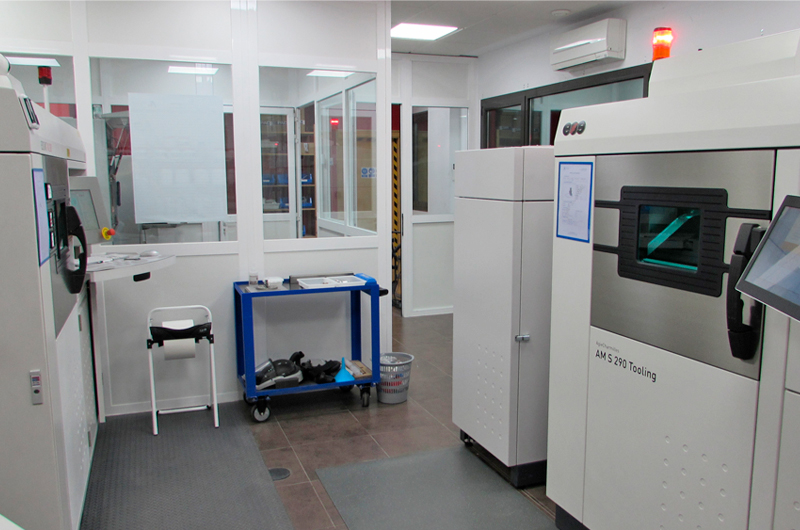
Intelligent manufacturing
Intelligent manufacturing Intelligent Manufacturing is the use of advanced technologies such as AI, robotics and automation to streamline the manufacturing process. It enables companies to achieve greater efficiency, accuracy and cost savings
Intelligent manufacturing.
Intelligent manufacturing, often referred to as smart or advanced manufacturing, represents a paradigm shift in traditional manufacturing processes by incorporating cutting-edge technologies and data-driven approaches. This approach aims to enhance efficiency, productivity, and flexibility in manufacturing operations. Here’s a detailed overview:
Key Elements of Intelligent Manufacturing:
- Integration of Information Technology (IT) and Operational Technology (OT):
- Intelligent manufacturing involves the seamless integration of information technology and operational technology. This convergence allows for real-time data exchange and communication between various components of the manufacturing process.
- Data Analytics and Big Data:
- The collection and analysis of vast amounts of data play a pivotal role in intelligent manufacturing. Advanced analytics, machine learning, and big data technologies are utilized to derive actionable insights, optimize processes, and make informed decisions.
- Internet of Things (IoT) and Connectivity:
- IoT devices and sensors are deployed throughout the manufacturing environment to gather real-time data on equipment performance, product quality, and other critical parameters. This connectivity facilitates better monitoring and control.
- Automation and Robotics:
- Intelligent manufacturing heavily relies on automation and robotics to streamline repetitive tasks, improve precision, and enhance overall efficiency. Collaborative robots (cobots) work alongside human operators, contributing to a more flexible and adaptive production environment.
- Additive Manufacturing (3D Printing):
- Additive manufacturing technologies, such as 3D printing, are integrated into the production process. This allows for the creation of complex and customized components, reduces waste, and offers new possibilities in design and prototyping.
- Artificial Intelligence (AI) and Machine Learning (ML):
- AI and ML algorithms are employed for predictive maintenance, quality control, demand forecasting, and optimization of manufacturing processes. These technologies enable systems to learn and adapt to changing conditions, improving overall efficiency.
- Digital Twin Technology:
- Digital twin technology involves creating virtual replicas of physical manufacturing assets, such as machines and products. This enables real-time monitoring, analysis, and simulation, leading to better decision-making and performance optimization.
- Supply Chain Visibility:
- Intelligent manufacturing extends beyond the shop floor to encompass the entire supply chain. Enhanced visibility into the supply chain allows for better coordination, inventory management, and responsiveness to market demands.
- Cyber-Physical Systems (CPS):
- Cyber-physical systems, which integrate computational algorithms with physical processes, are a core component of intelligent manufacturing. These systems enable real-time monitoring, control, and coordination of physical processes.
- Flexible and Agile Production:
- Intelligent manufacturing emphasizes flexibility and agility in production processes. The ability to quickly adapt to changes in product design, demand, or market conditions is a key characteristic.
- Human-Machine Collaboration:
- The role of human operators evolves in intelligent manufacturing to include supervisory tasks, problem-solving, and decision-making. Human-machine collaboration is optimized to capitalize on the strengths of both.
Benefits of Intelligent Manufacturing:
- Increased Efficiency: Real-time data and automation lead to more efficient production processes.
- Improved Quality: Advanced monitoring and control systems enhance product quality and consistency.
- Cost Reduction: Optimization of resources and processes often results in cost savings.
- Flexibility and Customization: The ability to quickly adapt to changing requirements supports flexible and customized production.
- Predictive Maintenance: AI-driven predictive maintenance minimizes downtime and extends equipment life.
- Environmental Sustainability: Reduced waste and energy consumption contribute to environmentally sustainable practices.
Intelligent manufacturing represents a transformative approach that leverages technology to create a more connected, efficient, and adaptive manufacturing ecosystem. As technologies continue to advance, the intelligent manufacturing paradigm is expected to play a central role in shaping the future of industrial production.




